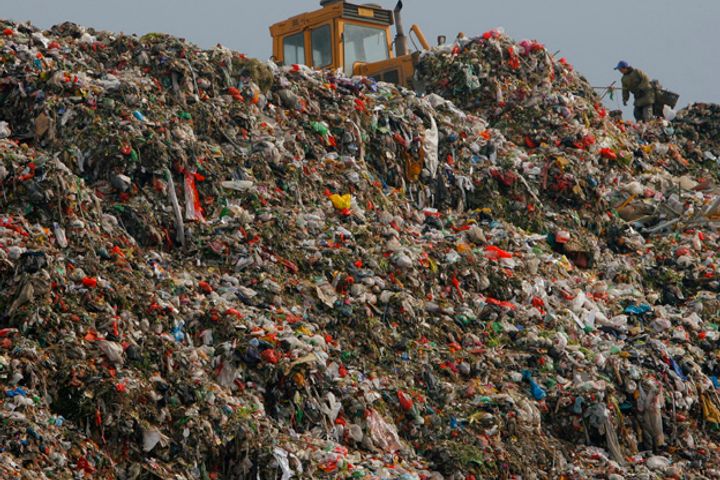 China's Plastic Recycling Gets Its Act Together as Import Trash Ban Bites Deep
China's Plastic Recycling Gets Its Act Together as Import Trash Ban Bites Deep(Yicai Global) Aug.10 --Theforeign garbage banthathas beenin placefor a yearhasmostly impacted the plastics recyclingtrade, though other fields have felt the heat as well. Thesectoris graduallyadapting,butcompanies arestillstruggling to seekdomestic sources.
Waste plastics providelow-cost raw materials for China's industrial development andoffset its shortage of petroleum resources. China imported more than half of the world's waste plastics in export value,perstatistics newspapertheEconomic Daily reportedtoday.
The new version of theimportedrefusemanagementstandardsreleased on April 18moved16 categories of solid waste such as industrial plastics from therestrictedlistforuse asrawmaterialsto the catalog of waste material forbiddenfrom import, which will be implemented by the end of this year.
This means the import of waste plastics hasgonefrom restrictedto totallybanned, and the operatingmode the domestic plastics recycling industryhas plied fordecades will completely change," said Wang Yonggang, secretary general oftheChina plastics recycling branch of China National Resources Recycling Association.
Theshortfallof raw materialstheforeign garbage banhas causedhashit plastic recyclingfirms hard. About 30 percent of thesehaveoptedto stop production and changeto a differentbusiness.Somehaveset uptheir own recycling systemsformade-in-Chinarubbish,whileothers have set upfactories overseas to process waste plastic into raw materials and then import theseinto Chinato sidestep the prohibition, Wang noted.
Tightening domestic environmental policieshave also applied the brakes towaste paper, scrap metal and otherfields.Under this increasingpressure, the level of pollution control hasgreatlyimproved, and industries and enterprises have graduallymigratedinto industrialparks andtransitedtoamodern circular economy.
The recyclingsectorisalso gravitatingonto astandardized, orderly and sustainable development track.
The foreigntrashban has greatly impacted the domestic renewable resource processing industryshort term, but the long-haultrendis totobarthe import of foreign garbageoutright, industry insiders said, adding that it isthusimperativefordomestic recyclingto pick up the slack.
The key to transforming the industry crisis into an opportunity for industrial upgrading is to encourage the renewable resources industry to turnontoatransformational development path with domestic solid wastesas the main raw materials, promote the development of recycling systems, andactivate the marketwith government guidance to force increased efficiency of garbage collection and recycling of renewable resources, noted Liu Jianguo, a professor attheSchool of Environmentat Beijing's prestigiousTsinghua University.
"From a regional perspective, in addition to China, Southeast Asian countries are also tightening theirregulation of importedwaste plastics. We believe that the future development of the industry will be based on localization, which places higher requirements on the construction ofarenewable resource recovery system," Wangsaid,echoingLiu's view.
The State Council, China's cabinet, officially issued an implementation plan fortheforeignrubbishimportprohibition in July last year. Thisprogram,seenas the most rigorous foreign garbage ban in history,hasdrawnwide attention.
China's economy has developed rapidlysince the 1990s,andobjectively needs import of some solid waste to alleviate its shortage of raw materials. The nation's solid waste imports have continued to grow for many years, but show a downward trend after reaching a peak of 59 million tons in 2012, per customs statistics.
The countryis the world's largest waste plastic recycling markets.Ithasalso passed the US tobecome theworld's biggestmunicipal solid wastegenerator, per a World Bankreport, churning out190,000,000 tons of MSWin 2004, a pile projected to reachat least 480,000,000 tonsper year by 2030.
The trouble is, garbage sorting initiatives that have proven successful in other countries have largely fizzled in China. The problem is thus very much a case of water, water everywhere, but not a drop to drink.
Public education will prove crucial if China is to ever clean up its own backyard and at the same time tap the potential goldmine its recoverable refuse represents.
Editor: Ben Armour